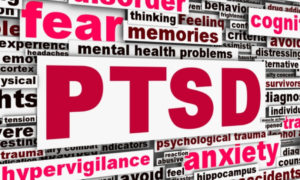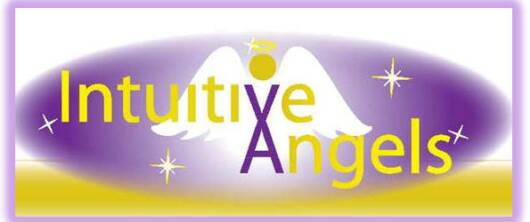
Post-Traumatic Stress Disorder is a phrase that has received lots of media attention over the last ten years. It’s something that most people associate with soldiers in combat, but it can also affect anyone who has suffered trauma, be it physical, emotional or a combination of the two.
As defined by Webster’s Dictionary, PTSD is: a psychological reaction occurring after experiencing a highly stressing event (such as wartime combat, physical violence, or a natural disaster) that is usually characterized by depression, anxiety, flashbacks, recurrent nightmares, and avoidance of reminders of the event.
To me, that’s a wonderful scientific summary of the disorder, but it barely scratches the surface of what it’s like for someone who has it. I use these words from my own experience and hope to share with you what it’s like for me so that you may perhaps hold a new perception of those also diagnosed with this waking nightmare.
The flashbacks, for me, aren’t every day anymore and for this I am grateful. There have been times in my life when I’ve endured those triggers daily, weekly, or monthly. I never have warning when one is going to come on. There’s no chest tightening, like a panic attack. No nausea comes forward like you feel when you’re about to wretch. It’s just instantaneous. It’s going from being in a peaceful space to suddenly the rug has been ripped out from underneath my feet and I’m hanging by my fingernails on the side of a cliff somewhere. I go into full on fight or flight and survival mode. I react both mentally, emotionally, and physically as if I am back in that exact moment in time. Somewhere in my brain, I believe I am back in that moment and I am unable to distinguish what is now and what was then.
My first flashback happened in my mid-thirties when I had an ovarian cyst rupture. The physical pain was intense and in the moment of that searing, misery of being doubled over, unable to speak, I was transported in my mind somewhere else. I could clearly see the bathroom in my childhood home. I saw myself in the tub. I saw my uncle on his knees next to the tub, placing his hand in the water, splashing at me. I then saw him take the bar of soap and begin to push it inside me. I will spare you all the in between details, but this was the first time this man molested me. The attacks continued till I was about 8 or 9 years old.
What’s different, for me, between a flashback and a memory recall, is that there is no time and space in between the flashback. When I recall a memory, I am aware of the now and the recollection. During a flashback, the moment of now disappears and my past becomes my current reality. During my first flashback, I could feel the warmth of the water, of the heat lamp in the bathroom. I saw the color of the washcloths and towels hanging on the rods. I saw how much of the Ivory soap bar had been used, the color of my uncle’s shirt, and the look in his eyes. And the pain. I felt that same, searing pain inside me just like what the ovarian cyst rupturing felt like. I was three years old.
As I laid on the bed in the emergency room screaming and writhing in physical pain, no one knew the images going on in the mind. I didn’t even know what was happening. I had suppressed these memories as my brain couldn’t deal with them at the time. As time passed, more and more flashbacks emerged. And with each one, as I questioned members of my family who did not witness these events, but were there before and after, I received confirmations of details I remembered. The puzzle pieces began to fit. Depression, anxiety, unworthiness all set in. I began therapy to deal with life.
Five years ago, my father had a tragic accident that led to his death three days after the fall. I witnessed it and there was nothing I could do to stop it as it happened so quickly. After sailing through the air over four steps, he landed head first, on his side, on the concrete sidewalk in the backyard. I will never forget the sound of his skull hitting the pavement, the moans that didn’t sound human coming from him, and how my cell phone had no range to call 911. After the accident and his death, I would awaken to nightmares where the whole scene was slowed down, frame by frame, moment to moment. I was helpless. I stopped sleeping through the night. I blamed myself. The guilt was intolerable.
Four years go by, and I was doing better. The triggers were not on a regular basis anymore. I had come to peace with the trauma. I had forgiven myself, or so I thought. Amid watching a movie with my family, a scene came on that showed the major character having a terrible fall, head first onto the concrete. The noise in the film was exactly like what I’d heard the day of my father’s accident.
I froze and then my whole body began to shake. I broke out in a sweat. I started to cry and those cries turned into wailing and me rocking back and forth. In my mind, here came the whole scene again from that very day – the smile on Dad’s face, him raising his arm up to throw something in the trash can downstairs, outside, him flying through the air, the impact, the gurgling, the panic. The loop played over and over in my mind. I couldn’t stop it. I felt the hot Summer sun on me, I heard his moans and then silence, I felt the buttons on my cellphone being pushed and not able to get through, knowing I would have to leave him alone to call from inside. I watched parts of him leave that day. Not only was I reacting physically but I was emotionally feeling everything all over again just exactly as I had that day. It took about 20 minutes to come out of that. I wasn’t able to speak. I thank God my husband was there to hold me through it.
Therapy had helped me manage this disorder. Meditation, prayer, faith, and energy work have assisted me in living a better life than what I once lived. I am still affected. I still have triggers. I can do my best to stay away from the obvious ones, but I don’t know what’s waiting for me around the corner.
I explain this today, not for pity or for people to feel sorry for me. I believe that knowledge is power. I believe that bringing things up to the surface to see the light of day is important. I often wonder if those that came before me had been forthright about their own emotional pain and sought help, would I have suffered as much? Who knows what my uncle endured as a child or what abuse was done to him. What may have happened if he spoke out?
We are all affected by trauma in some form, whether it is first hand or by the connection to those who suffer it’s after effects. It’s not a sin to have emotional scarring and it’s certainly nothing to be ashamed about. No one chooses trauma. Trauma happens.
If you or someone you know is having emotional difficulty, reach out. I don’t know where I’d be without the help I’ve received from professionals and from my family and friends.

